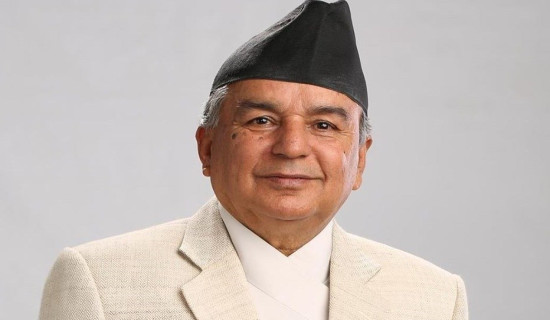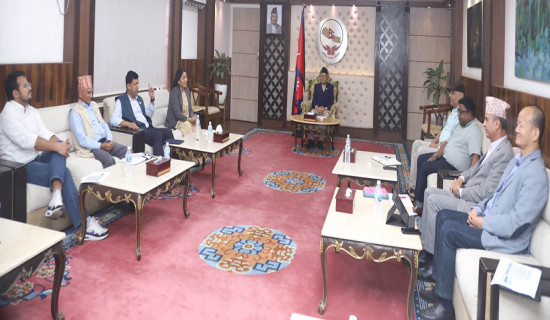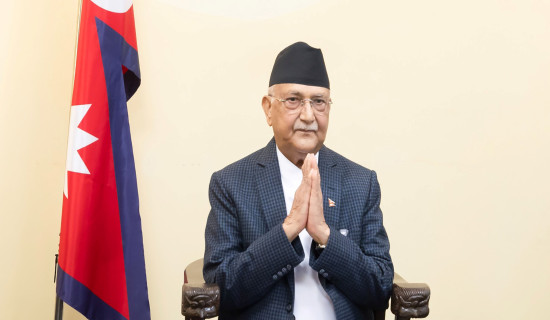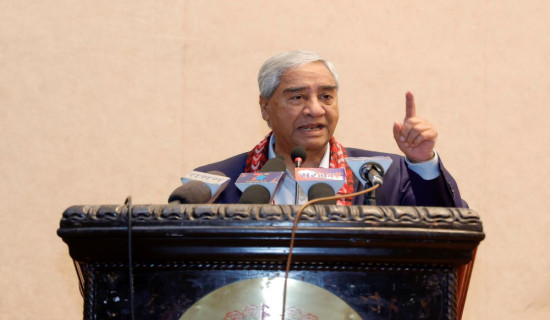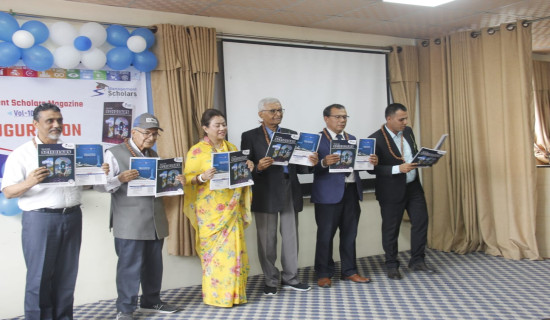- Sunday, 6 July 2025
Symposium on Nepal-China cross-border railway held
By TRN
Online, Kathmandu, Oct 9: A symposium on Nepal-China cross-border railway was
held recently.
The symposium
was hosted by the Nepal-China Academy of Social Relations.
Scholars in
the field of politics and economics from Tribhuvan University in Nepal, West
China Frontier Research Institute of Sichuan Normal University, South Asia
Research Center of Tibet University for Nationalities and West China Institute
for South Asia Policy Studies participated in the symposium.
The
symposium was organized physically in Kathmandu and Chengdu and linked online
as well. The symposium was chaired by Prof. Balmukunda Regmi from Nepal, and
Prof. Sun Yong from Sichuan Normal University delivered a speech at the
meeting.
Scholars
made in-depth analysis and discussions on issues related to the Nepal-China
cross-border railway.
Former
Speaker Krishna Bahadur Mahara, Prof. Sun Yong, Prof. Balmukunda Regmi, Prof.
Di Fangyao, Prof. Surya Bahadur Thapa, Dr. An Gaole, Dr Yang Rongtao, Dr Sun
Honglin, Dr Zhu Mingjie, Dr. Bimala Dahal, Prof. Cheng Xihong and Former MP
Hari Roka presented policy, economic and technical papers.
Former
Ambassador to Norway Yuba Nath Lamsal summarized the findings and recommended organizing
such meetings more frequently, and Prof. Regmi concluded the symposium held on
September 30.
Scholars
agreed that the Nepal-China cross-border railway will become a historical
witness of the brotherhood between the two countries and a new bond of a
community with a shared future.
The
construction of the Nepal-China cross-border railway has been in discussion for
a long time and covers new content. It can effectively promote cooperation
between the two countries, provide new momentum for long-term cooperation
between the two countries, and provide strong support for the national security
and development of both Nepal and China.
However, the
construction of cross-border railways also faces many difficulties. The Nepali
legal system has limitations, the government's governance capacity needs to be
improved, and financial difficulties and other factors have also brought more
uncertainty. To this end, China should actively build institutions and
mechanisms to promote the construction of the Nepal-China railway, promote
friendly exchanges between political parties in the two countries, deepen
cultural exchanges, strengthen bilateral cooperation, establish early warning mechanisms
of risks, and help the vision of the Nepal-China cross-border railway as soon
as possible.
The symposium
helped effectively promote the communication and coordination between Chinese
and Nepali academic circles on cross-border railways, and further implemented
the goal of the "people-to-people bonds" initiative. The two sides
agreed to continue holding similar meetings in the future to promote exchanges
and coordination between the two sides and push the friendship across the
Himalayas to a new height, according to a statement by the Nepal-China Academy
of Social Relations.












